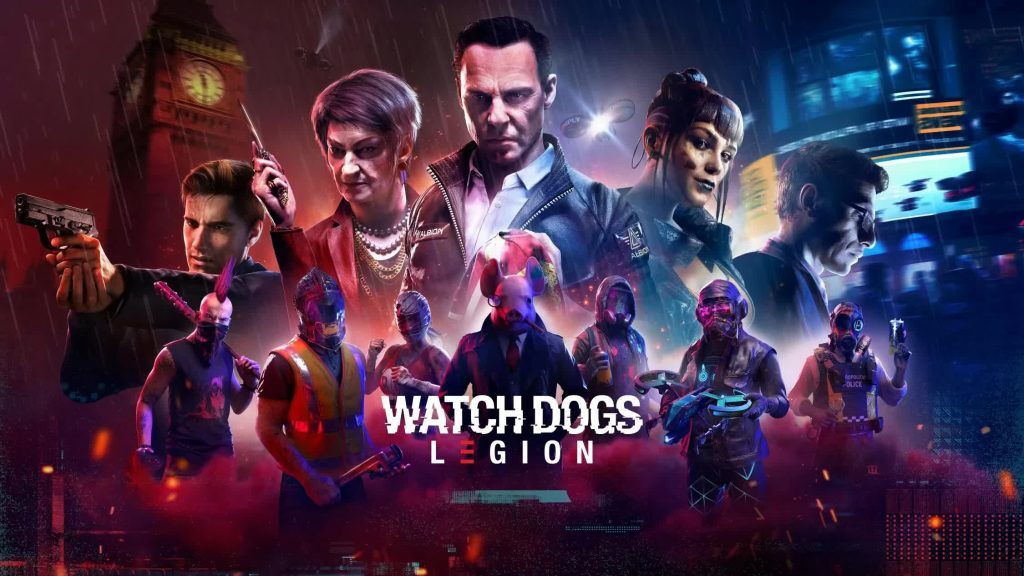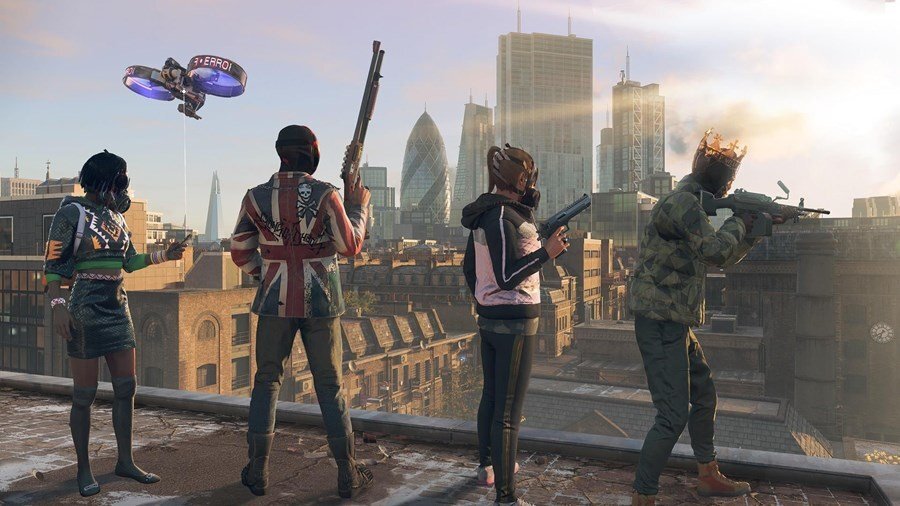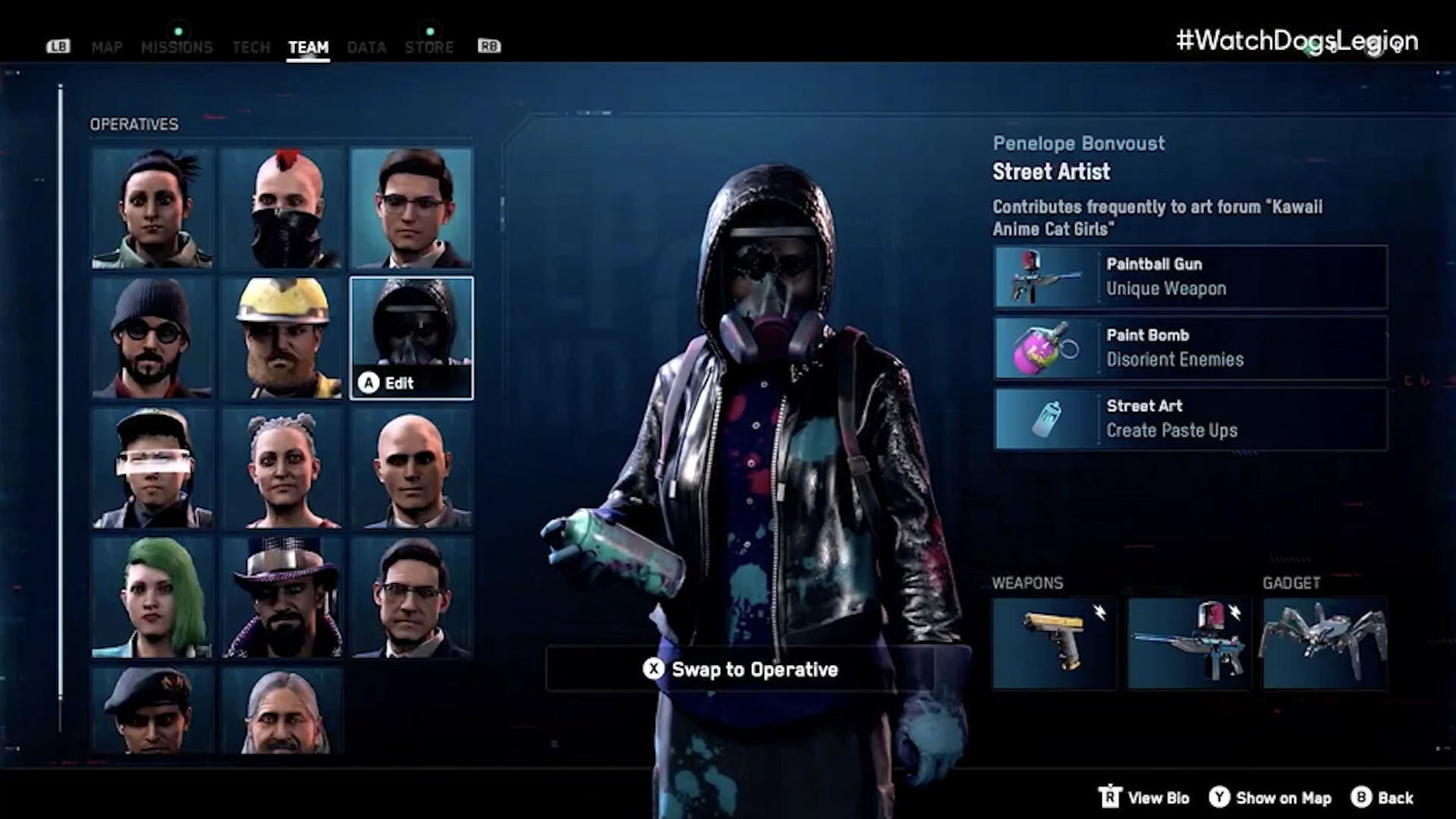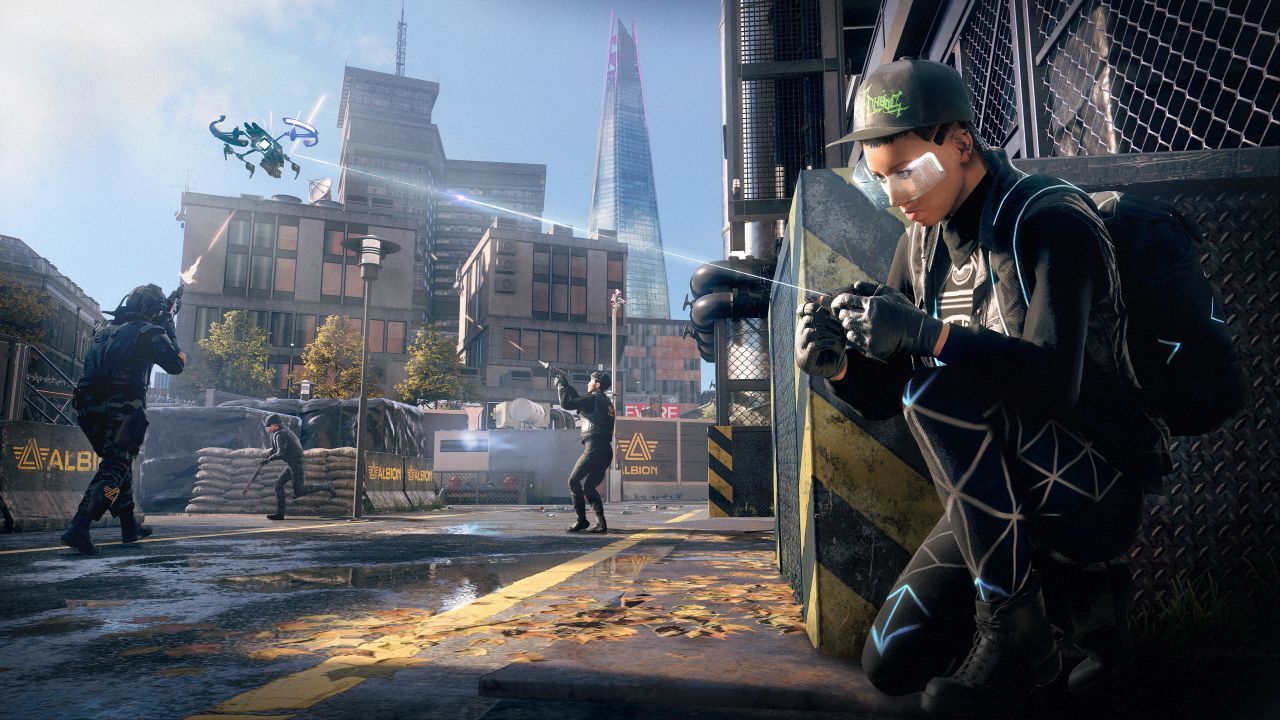Ubisoft hedged its bets on some amazing steps forward in procedurally generated content and while Watch Dogs: Legion is an interesting experience because of it, the game feels more like a tech demo than something actually worth playing. It's loaded with rinse and repeat content, boring story beats and villains that just seem to fade into the background to the point where the story becomes more of a chore than anything else. Still, there's fun to be had in expanding your army with a horde of Londoners looking to stick it to the man but its the sort of fun you really have to dig to find.
-
Graphics
Watch Dogs has always been a franchise that emphasises people. Not necessarily characters, as the first game’s dreary writing attests, but the people in the world and how you interact with them. It’s a franchise that’s made it’s core about the interconnectedness of technology and how that can be manipulated by someone who knows what they’re doing. Thus, Watch Dogs: Legion is the next logical step forward for Ubisoft’s hack-em-up: Rather than just simply browsing the online profile of every NPC in the game, Legion lets you take advantage of those folks roaming the streets and use them to assist your cause.
While that’s a cool idea in concept, it’s… harder to execute. It’s something I’m confident Ubisoft knew about when it decided to make that the core design pillar of the game. Having a huge advancement in procedural generation as your premise means sacrificing some aspect of the game’s presentation, be it narrative or structural. Ihe main question is whether that trade -ff was worth it and, as impressive a feat as it is, Ubi’s innovation is not enough to carry the weight of an entire game.
Watch Dogs: Region
Before delving into the issues with Watch Dogs: Legion, let’s first discuss what the game does right. Set in a near-future London, a city taken over by an authoritarian private security company named Albion, the game’s map is both expansive and impressively detailed. Streaming the game over on StuffPlays, I had viewers currently living in the UK that were able to point out their office or where they went shopping in Camden. It’s a staggering amount of detail and a commitment to replicating the real aesthetic and layout of London that makes for — maybe — one of the most visually authentic maps Ubisoft has ever created.
Which also goes for the game’s NPCs, all of whom could potentially play a significant role in the game’s story. In all my time with Watch Dogs: Legion, I can’t remember seeing a copy-pasted human asset once. Which is certainly a nice touch and one that’s arguably necessary for the premise of “play as anyone”. But even if you’re not playing as them, London is teeming with people going about their day, each with their own goals, destinations, backstories and links to other folks wandering the city. The world feels alive, bristling with energy.
It can’t be stressed enough what a monumental achievement the procedural generation in Watch Dogs: Legion is. The sheer variety and density of randomly created content is staggering, especially when one looks at the mechanical differences that not only differentiate characters but make logical sense based on their lifestyle and background. It’s genuinely cool and recruiting people you think are suitable for your revolution is the best fun the game has to offer… but beyond that, it grows dull very quickly.
Watch sleeping dogs lie
While the technical feats that power Watch Dogs: Legion are impressive, they unfortunately aren’t enough to carry the entire game on their shoulders. Not having a dedicated protagonist, alongside a very thin supporting casts, makes for a narrative that is unengaging. To provide some context, you’ll be playing as a member of DeadSec, a hacktivist group framed for a series of bombings in London. With the faith of the people lost, London turns to Albion, a private security firm (equipped with enough resources for an army) to run the city. Things become very dystopian very quickly as Albion turns London into even more of a surveillance state. You’re tasked with overthrowing them.
It’s a fairly standard set-up that holds zero water due to the lack of compelling characters. It’s certainly cool to see your procedurally generated crew hang out and talk during cutscenes. It’s also exceptionally canned. Dialogue and character interactions feel very much like the audience laughter you’d here in a 90s sitcom: It sounds like real people and it’s playing at the appropriate time but you know it’s just a computer inserting it at the proper intervals to make it seem real.
Watch Dogs: Legion has the structure of a story but no actual narrative to fit within it. Events happen in an order that make you think there’s a narrative but it’s really just… events that loosely connect to one another. There are no characters to speak of, barring one or two supporting folks that, despite actually being pre-programmed and not procedurally generated, are somehow more boring than the randomly rolled individuals you’re playing as. The game has interesting villains — that sometimes verge on cliché a little too closely — but they occur so infrequently you’ll forget they’re in the game at all. A real disappointment given how strong the character writing in Watch Dogs 2 is; I’d hoped they would continue the tradition with the sequel.
In terms of actual gameplay, Watch Dogs: Legion also reeks of the same Ubisoft formula you’ve come to either adore or loath: a massive open-world filled with things to collect, bases to stealth into and people to shoot so that you can eventually liberate the various districts of London. You’ll be doing the same rote missions over and over and to hit the 100% completion marker — which you’ll either find cathartic or, if you’re like me, painfully boring.
Watch Dogs: Legion Verdict
Ubisoft hedged its bets on some amazing steps forward in procedurally generated content and while Watch Dogs: Legion is an interesting experience because of it, the game feels more like a tech demo than something actually worth playing. It’s loaded with rinse-and-repeat content, boring story beats and villains that jus fade into the background to the point where the story becomes more of a chore than anything else. Still, there’s fun to be had in expanding your army with a horde of Londoners looking to stick it to the man, but its the sort of fun you really have to dig to find.






